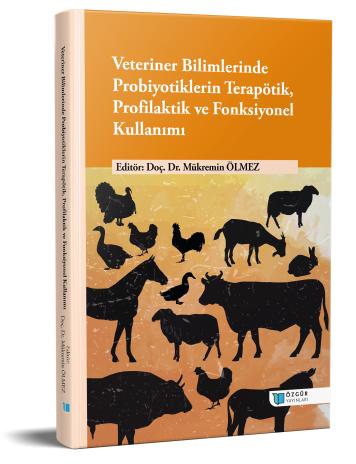
A Strategic Approach to Nutrition of Poultry Exposed to Heat Stress: Probiotics
Chapter from the book:
Ölmez,
M.
(ed.)
2023.
Therapeutic, Prophylactic, and Functional Use of Probiotics in Veterinary Sciences.
Synopsis
Global climate change is increasingly accelerating and it is predicted that the consequences of global warming may lead to bad consequences. Heat stress is one of the major problems affecting poultry production in subtropical and tropical regions. Intense heat waves have recently caused great economic losses in livestock farming, especially in the poultry sector, in various parts of the world. Poultry raised in hot climates suffer from heat stress, which affects meat and egg production, reproductive performance, feed intake, and adversely affects feed conversion efficiency and lower growth rates. Reduced feed consumption causes a decrease in meat quality, growth, egg production and quality. To eliminate these negative effects on performance in poultry, various nutritional strategies (controlled feeding, wet feeding; feed restriction; water management, etc.) are applied, including probiotic supplementation in the diet. These strategies aim to improve the intestinal ecosystem, physiological conditions and immune system, thus improving performance and health in birds exposed to heat stress.Potential methods to improve the response to heat stress in poultry are being investigated in more detail, with particular reference to the role of probiotics in controlling such problems. Possible mechanisms by which probiotics may exert beneficial effects on heat-stressed birds are discussed along with data reporting possible disadvantages of probiotic use in heat-stressed poultry. Probiotics attract the attention of poultry nutritionists because they can improve the physiology, intestinal health and immune system of poultry under heat stress, thus increasing productivity and making a great contribution to the economy.Therefore, it is thought that the application of probiotics together with appropriate management may help eliminate some of the negative effects on heat-stressed poultry. This review provides a scientific approach to the impact of heat stress on health and growth performance in poultry, as well as outlining the application of probiotics as a promising nutritional strategy to alleviate the negative effects of heat stress in poultry.

